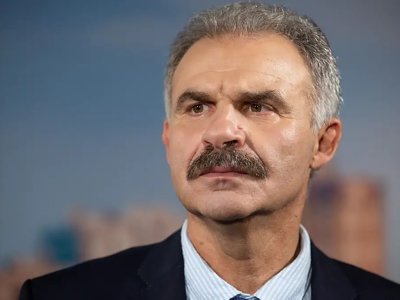Why must Kazakhstan hold off liberalisation and keep foreign manoeuvring?

Historian Sultan Akimbekov talks to Exclusive.kz about his new book “A brief history of the Kazakhs” and shares his thoughts on the past and present of Kazakh statehood.
Q — Your book says that the Kazakh Khanate was the last, and short-lived, independent nomadic state in the Eurasian steppe. What kind of state was it and why did it lose its independence?
A – The Kazakh Khanates — there were several at the time — lost their independence in the early 19th century. It was a paradoxical situation because when the two agrarian empires, China and Russia, closed in on them from two sides, taking control of areas of the steppe from the east and the west, the Kazakh Khanate had no nomadic competitors. Their existence in the past had served as a powerful incentive for the unification of individual Kazakh tribes. In the absence of such competition, the Kazakh Khanate started to break up into various parts and got weaker.
The Khanate was based on the Genghisid tradition of a supra-tribal structure of power which ensured political continuity from the time of the Ulus of Jochi Khan.
The classical system of nomadic statehood involved a minimal state apparatus, which is the foundation of the old debate around whether the nomads ever had statehood.
What does the state mean in general? The state has a monopoly on violence, it ensures monopolistic control over the resources needed to achieve certain goals, for example defence or aggression.
The Kazakh Khanates always veered between becoming strong and centralised, and getting decentralised and weak. Why? Because it was always difficult to force the tribes to obey the centre.
The history of any nomadic state is a struggle between tribal independence and a strong state power.
Q — Could things have followed another scenario, which could have allowed the Kazakhs to preserve their independence?
A — No, they could not. In the 19thcentury the agrarian empires acquired colossal military might. In some way, we got lucky [and did not become a Chinese colony] because China got weaker for a number of reasons under the Qing Dynasty.
Q — How about the options that were available to Kazakhstan after the Soviet collapse? Both in terms of internal political reforms and foreign policy?
A — We were lucky that at the time of the Soviet disintegration Kazakhstan was not an autonomous region [within the Russian Federation], like Tatarstan and Bashkortostan, but a republic. Otherwise, we would be part of Russia now.
Fortunately, that did not happen, and Kazakhstan has done the maximum [to become a sovereign state] given the circumstances, i.e. not having the best cards in its hands.
The very fact that the period of separation went ahead without violent conflicts is something incredible. After all, we are located in a strategically important place on the continent and there are three empires, China, the USA and Russia, manoeuvring around us.
Things have really played out not too badly for us. We could have gone the Uzbekistan way, and, like the Uzbeks, be trying to begin reforms 30 years after the Soviet collapse.
Or we could have been in the same situation as Belarus or Turkmenistan, or Georgia and Armenia. Everything was possible.
Q — Are you not choosing for comparison the most dramatic examples?
A — We need to compare ourselves to those with whom we are in a similar situation. There is no need to look at Europe, where they have completely different circumstances.
It is the Almaty intelligentsia’s old disease to compare us to Europe. We have to compare ourselves to Uzbekistan, Tajikistan, Russia. It would take too long to explain why, but in short: it is pointless to dream of suddenly turning into Poland or Switzerland.
Had we chosen a liberal path [after independence] we would have found ourselves not in the same situation as Poland or Bulgaria, but that of Tajikistan, Moldova, Georgia and Azerbaijan – facing ethnic conflicts and all that.
Why are you convinced that if we did not have a strong centralised government, we would have avoided all that? I am not sure. Most likely we would have repeated the fate of many former Soviet republics.
As for foreign policy, our multi-vector policy allows us to balance between great powers and prevents domination of one single power, which is important.
It is a good thing that there are three superpowers, not two, which would make manoeuvring more difficult.
There are also Turkey, Iran, the European Union … Which creates more options, and everyone is interested in us acting as an independent player in international relations. Because if we suddenly become a pawn, it will create tensions for everyone concerned.
Of course, objectively we have many shortcomings [as a state], but on the whole from the point of view of national interests we are not in a bad situation – I think when we focus on particulars, we end up seeing everything in a negative light.
Q — How about the future of our independence?
A — We shall continue to manoeuvre, I hope.
Returning to your question about our post-independence options, I would like to give one example – if we had a competitive political system now, we would be currently discussing the war in Ukraine not on Facebook but in parliament.
Q – Would that be good or bad?
A — I think it would be bad. We are not ready for it. Our society is too polarised and divided along many lines. Are we ready to discuss sensitive issues? Let me remind you, as soon as we start a liberalisation process, all the latent conflicts will come out of the woodwork.
- Последние
- Популярные
Новости по дням
4 мая 2024







